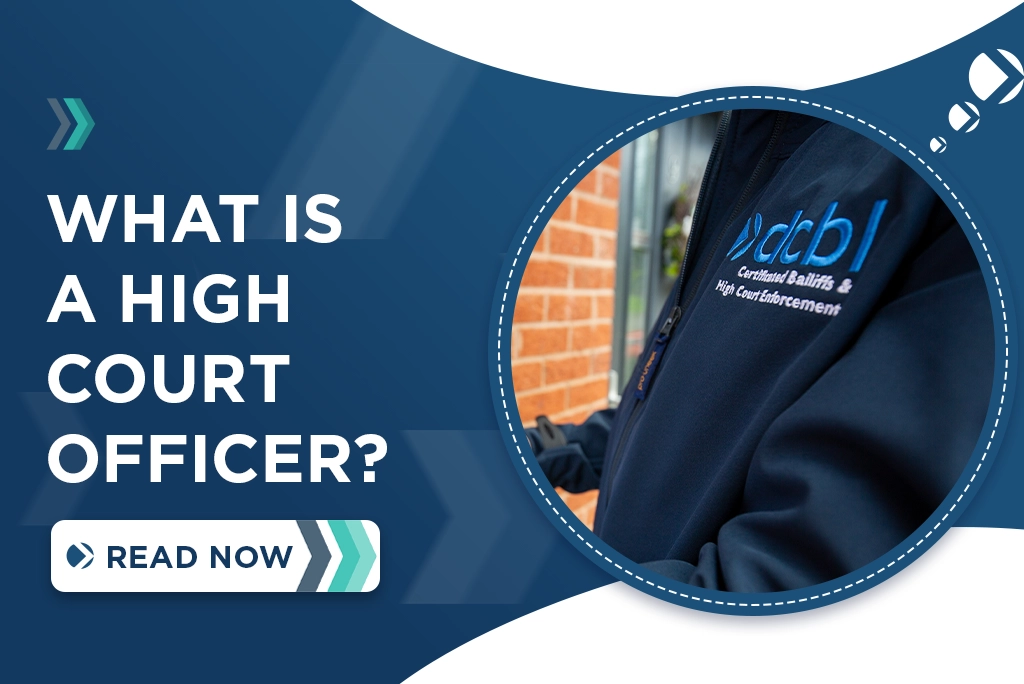
What is A High Court Enforcement Officer (HCEO)?
5th April 2023
What Is a High Court Enforcement Officer? – Contents
- What are the Powers and Responsibilities of a High Court Enforcement Officer?
- What Powers of Enforcement does an HCEO have?
- Find Certificated Enforcement Agents with DCBL
A High Court Enforcement Officer (HCEO) is authorised by the Lord Chancellor to recover money or assets owed to creditors.
When a High Court rules in a creditor’s favour, the judge will provide a High Court Writ that summarises the debt owed.
Then, the creditor can instruct a High Court Enforcement Officer to enforce and collect this debt on their behalf.
What Are the Powers and Responsibilities of a High Court Enforcement Officer?
HCEOs have a higher level of power than other court officers, and they can enforce several levels of judgment in several different ways.
What Judgments Can Be Referred To A High Court Enforcement Officer?
- High Court Judgments include a High Court Writ or a Writ of Possession, Control, Restitution, Delivery, or Assistance.
- County Court Judgments over £600 when they are turned over to the High Court for enforcement.
- Employment Tribunal and ACAS judgments.
- The recovery or repossession of goods, property, and land.
What Powers of Enforcement Does an HCEO Have?
There are several rights that a High Court Enforcement officer has the power to use.
Upon receiving the Writ of Control from the Court, the High Court Enforcement Officer will contact the debtor to commence the four stages of enforcement.
In addition to this process, the Taking Control of Goods Regulations of 2014 also set out an HCEO’s powers and the debtor’s rights during enforcement.
Right of Entry and Right of Control and Removal of Goods
In cases where they do not pay during the compliance and enforcement stages, HCEOs have the legal authority to enter the debtor’s property and retrieve assets to cover the full price of the debt and fees.
Peaceful Admittance of Residential Property
Before visiting and entering the debtor’s property, the High Court Enforcement Officer must provide seven days‘ written notice as part of the compliance stage.
Furthermore, forcible entry to a property is not permitted before peaceful entry has been obtained.
Forcible Entry of Business Premises
Similarly to residential properties, HCEOs will always attempt to gain entry to the premises of a business without using force.
However, in cases where no living accommodation is attached to the premises, an HCEO has the right to force entry to the property.
An HCEO will provide a written notice beforehand and resecure properties on exit.
Type of Goods to Remove
There are also limitations to the type of goods they can remove as part of the debt enforcement process:
- HCEOs may only take goods belonging to and owned completely by the debtor. This means that rented or borrowed items are not eligible for a Controlled Goods Agreement.
- They may not take anything that is part of the debtor’s profession or as a ‘tool of the trade’.
- Any goods essential to the debtor’s survival and their dependents are also exempt from a Controlled Goods Agreement and removal.
- If goods are under a separate CGA as part of another enforcement process, these goods are not eligible.
Find Certificated Enforcement Agents with DCBL
If you need high court enforcement services, then get in touch with DCBL today.
Our industry-leading agents are on hand to provide unrivalled customer service and some of the industry’s highest recovery rates.
We’ll provide you with your own case manager to guide you and keep you updated along the way.
Read more about Selecting a High Court Enforcement Agency.
And as well as High Court Enforcement Services, DCBL agents can help with Debt Recovery, Traveller Removal, and Debtor Tracing.






